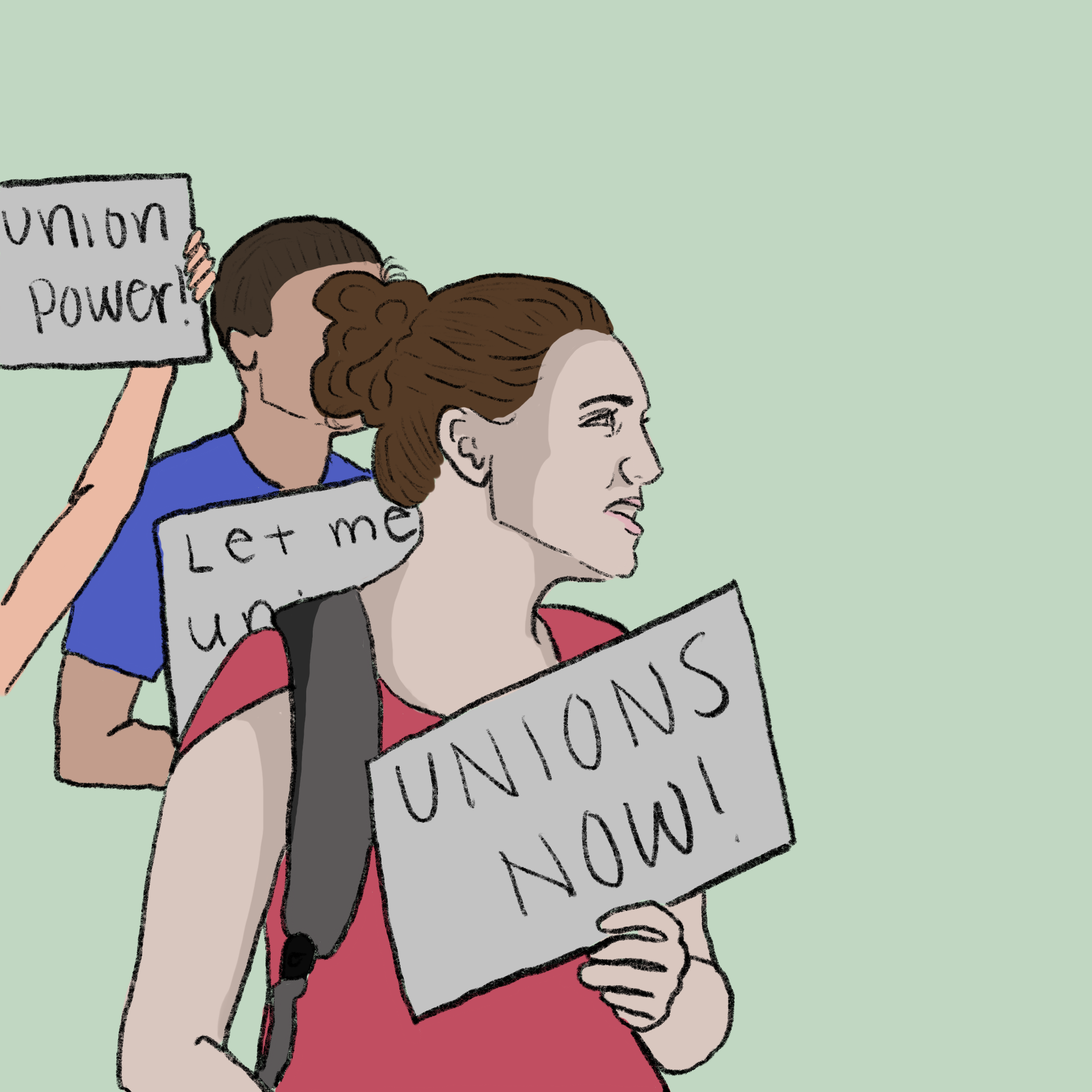The Class of 2025 has not even seen campus. Many students dropped school for the academic year. And all students returning to a hopefully in-person fall semester have had much of their college experience ripped out from under them.
The Student Association has a major responsibility to reintegrate students into campus life, but as it stands, a lot of people understandably don’t trust the organization, and many others feel excluded from it.

Hannah Thacker | Opinions Editor
If the University returns fully in person this fall, the newly elected SA leaders must prioritize welcoming students back from the minute they start their roles.
Students voted in current Student Association President Brandon Hill and SA Sen. Kate Carpenter, U-at-Large, to serve as SA president and vice president, respectively, last week. As the candidates prepare for their new positions and responsibilities, they should consider what problems on their platforms to focus on, which ones to drop and which new problems they need to address. Carpenter wants to emphasize sexual education and improve the distribution of menstrual hygiene products, while Hill wants to improve the financial aid system. But the one issue they both need to take on is organizing events that will help students feel like actual students again after more than a year of remote learning. That needs to headline the start of their tenures.
Hill and Carpenter need to narrow down their platforms and focus on the reintegration of students back onto campus, restoring trust and transparency within the SA and advocating for student inclusion and representation. The newly elected candidates also need to drop buzzwords like “reform” and take actual action on items like financial aid, safety and security and create real change. Certain areas of their platforms, like Hill’s focus on parking and Carpenter’s focus on sports culture, can be altered or reduced in significance, and they can instead focus on more pressing issues students will face recovering from a year of online class.
The primary focus of both incoming student leaders should be reintegrating students back to the GW community to diminish students’ feelings of being disconnected from campus life. The candidates must work to create programming for the freshman and sophomore classes, so they have as many opportunities as possible to socialize and meet people in person.
Another hurdle facing both candidates is how to restore trust and transparency in the SA after a whirlwind year for the organization. After allegations of mismanagement and sexual misconduct and the subsequent resignation of former SA president Howard Brookins, students are wary of the organization and its insular culture. The new leaders need to focus on creating an environment where other students see the SA as a helping body instead of a governing body. Students need to see that the organization didn’t just kick the former president out but that they have addressed any cultural and organizational problems that led to his appointment and allegations in the first place. This could be facilitated through internal trainings that encompass sexual assault and workplace aggression and increased transparency with the student body through clear and consistent communication via email and social media.
The SA has a reputation of being a toxic body that gets dunked on all the time and even has had calls for its abolition, but it should instead be seen as helpful. Take former SA Sen. George Glass, U-at-Large, who promoted mutual aid by interacting with large quantities of students over social media. Students want to see change that impacts them the most, but they don’t always see what the SA works on from day to day. To remedy this, individual senators and the incoming leaders need to publicize what they are doing so students know who is working for them and what they are doing for them. This could take the form of an online tracker that spells out each leader’s wishes and the status of their goals.
But connecting with the student body and publicizing their work can carry with it the temptation to distill complex and important topics to nothing but buzzwords. Graduate student advocacy, financial aid, LGBTQ inclusion and more all sound good on a policy platform or look sharp on a Canva graphic, but the reality of making progress on these issues is more complicated. It seems that year after year, SA leaders focus on style and not substance. Hill and Carpenter have the opportunity to break that mold this year and achieve goals that will benefit students.
The past year has been difficult, to say the least. The stresses of the pandemic and virtual learning have introduced new challenges for students to confront, but also new opportunities for the GW community to come back stronger. If Hill and Carpenter focus on implementing specific policies and reconnecting with the student body, they could go on to be legitimately transformative SA leaders.
The editorial board is composed of Hatchet staff members and operates separately from the newsroom. This week’s piece was written by opinions editor Hannah Thacker and contributing opinions editor Andrew Sugrue, based on discussions with managing director Kiran Hoeffner-Shah, managing editor Parth Kotak, sports editor Emily Maise, culture editor Anna Boone and design editor Olivia Columbus.
Want to respond to this piece? Submit a letter to the editor.

